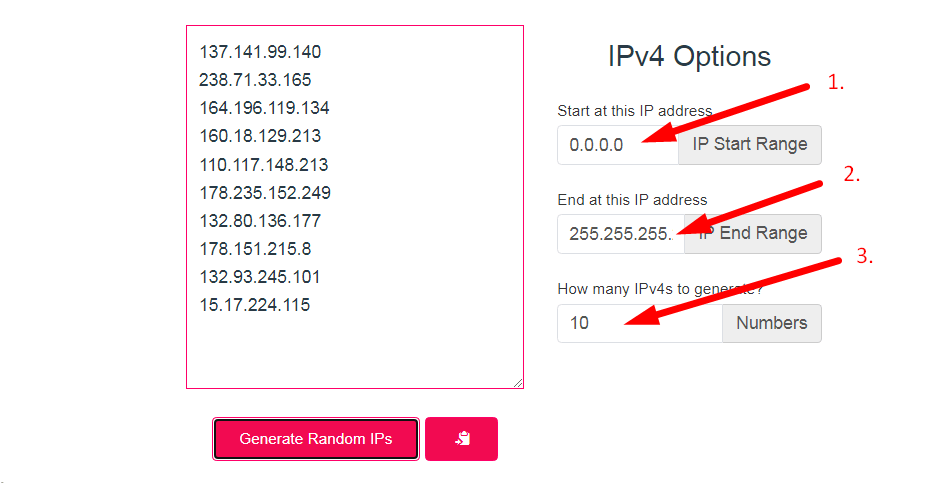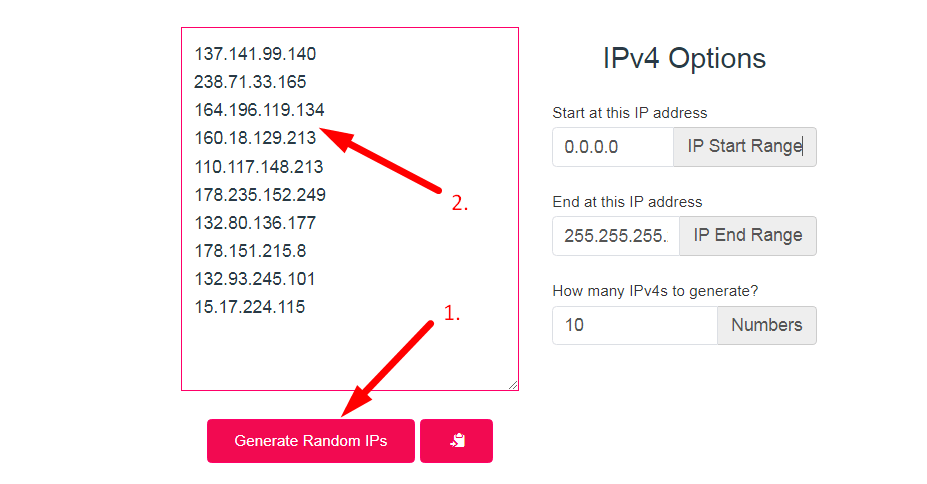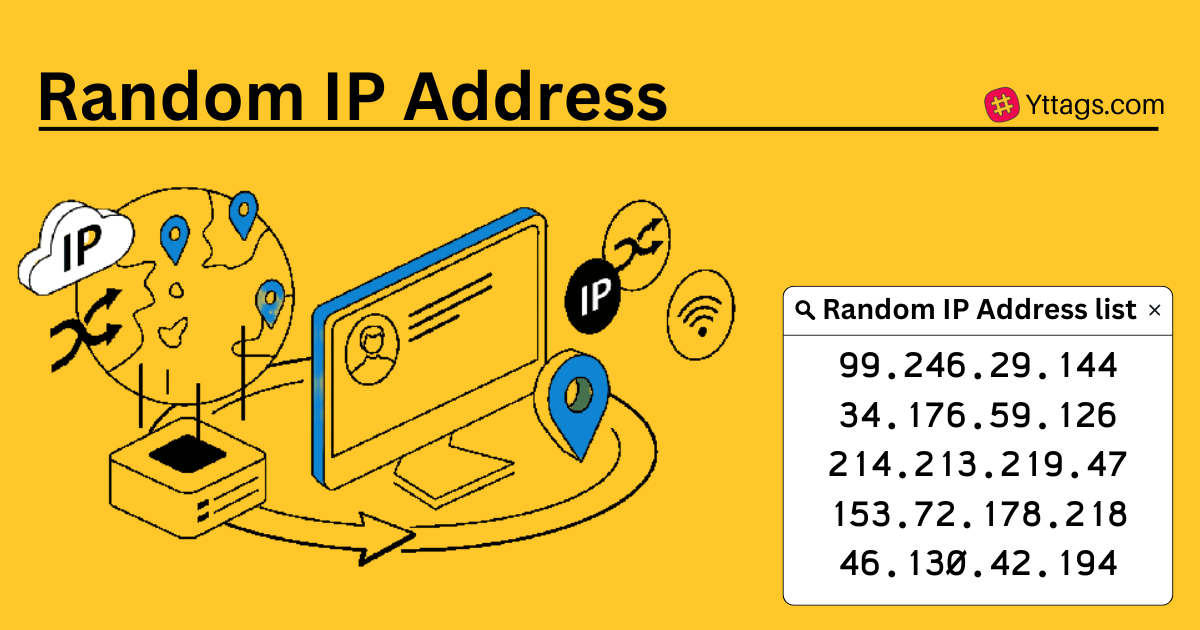Random IP Address
Free Online Random IP Address Generator to generate ip addresses randomly. This tool supports IP generation based on Range. It's also called Fake IP Generator.
IPv4 Options
IP Start Range
IP End Range
Numbers
If you use this great tool then please comment and/or like this page.
Average Rating: Tool Views: 160
Average Rating: Tool Views: 160
Subscribe for Latest Tools
How to use this Random IP Address Tool?
Random ip generator is free to use tool. That allow to generate ip address online.
Random ip address list
Some random ip address list
- 104.112.177.224
- 105.222.236.186
- 116.120.76.17
- 123.52.26.173
- 16.150.91.140
- 173.248.62.123
- 175.62.232.109
- 194.19.55.219
- 196.28.200.186
- 205.142.242.194
- 209.215.56.6
- 23.194.124.14
- 253.251.227.179
- 29.175.130.179
- 40.138.11.208
- 44.150.181.48.170
- 78.73.66.13
- 84.74.65.84
- 89.213.182.55
- 93.239.97.136
- 96.69.97.47
- 99.89.130.70
Feature of this tool
- wonderful user-interfaces.
- one click download ip addess in txt formate.
- fast and secure.
- No hidden changes
- Multiple options.
- More features.
- Generatre ip address own your choise.
- Easy to use.
Generate a fake IP address - helpful generating test data.
How to generate a random ip address in JavaScript?
const randomIp = () => Array(4).fill(0).map((_, i) => Math.floor(Math.random() * 255) + (i === 0 ? 1 : 0)).join('.');
Example
randomIp(); // 175.89.174.131
get Random Ip Address - Java java.util
//package com.java2s;
public class Main {
public static String getRandomIpAddress() {
return getRandomInt(0, 255) + "." + getRandomInt(0, 255) + "."
+ getRandomInt(0, 255) + "." + getRandomInt(0, 255);
}/*from ww w . j av a2 s . co m*/
public static int getRandomInt() {
return getRandomInt(1, Integer.MAX_VALUE);
}
public static int getRandomInt(int min, int max) {
return min + (int) ((Math.random() * (max - min)));
}
}
SQL to Generate Random IP Address
SELECT CONCAT( TRUNC(RANDOM() * 250 + 2), '.' , TRUNC(RANDOM() * 250 + 2), '.', TRUNC(RANDOM() * 250 + 2), '.', TRUNC(RANDOM() * 250 + 2) )::INET;
How to use Yttags's Random IP Address?
- Step 1: Select the Tool

- Step 2: Select The Settings

- Step 3: Click On Generate Random ip's Button And Check Your Random IP Address Result

If you want to link to Generate Random Ip page, please use the codes provided below!

FAQs for Random IP Address
What is a Random IP Generator?
A Random IP Generator is a tool or program that generates random IP addresses, typically for testing, simulation, or other specific purposes, without any association to actual devices or networks.
How to generate a random ip address?
To generate a random IP address, randomly select four numbers between 0 and 255 and combine them with periods to form the IP address format (e.g., 192.168.1.100).
What is an ip address?
An IP address (Internet Protocol address) is a numerical label assigned to each device connected to a computer network that uses the Internet Protocol for communication. It serves as a unique identifier, allowing devices to send and receive data within the network.
What is the difference between an ipv4 and ipv6 address?
The main difference between an IPv4 and an IPv6 address is the size and format. IPv4 addresses are 32-bit, expressed in four sets of decimal numbers (e.g., 192.168.0.1), while IPv6 addresses are 128-bit, represented in hexadecimal format with eight groups of four characters (e.g., 2001:0db8:85a3:0000:0000:8a2e:0370:7334). IPv6 was introduced to accommodate the increasing number of devices and addresses required by the growing internet.
How many IPv4 addresses are possible?
There are approximately 4.3 billion possible IPv4 addresses due to its 32-bit format, but not all of them are available for public use as some are reserved for specific purposes like private networks, documentation, and other special uses.
How many IPv6 addresses are possible?
There are approximately 340 undecillion (3.4 x 10^38) possible IPv6 addresses due to its 128-bit format, providing a virtually unlimited supply of unique addresses to accommodate the growth of the internet and connected devices.
Can you make up an IP address?
Sure! Here's a randomly generated example of an IPv4 address: 203.128.55.100.
Why do you need a Random IP Generator?
A Random IP Generator is useful for various testing, simulation, and development purposes, such as stress testing networks, creating sample data, and generating test scenarios without affecting real devices or networks.